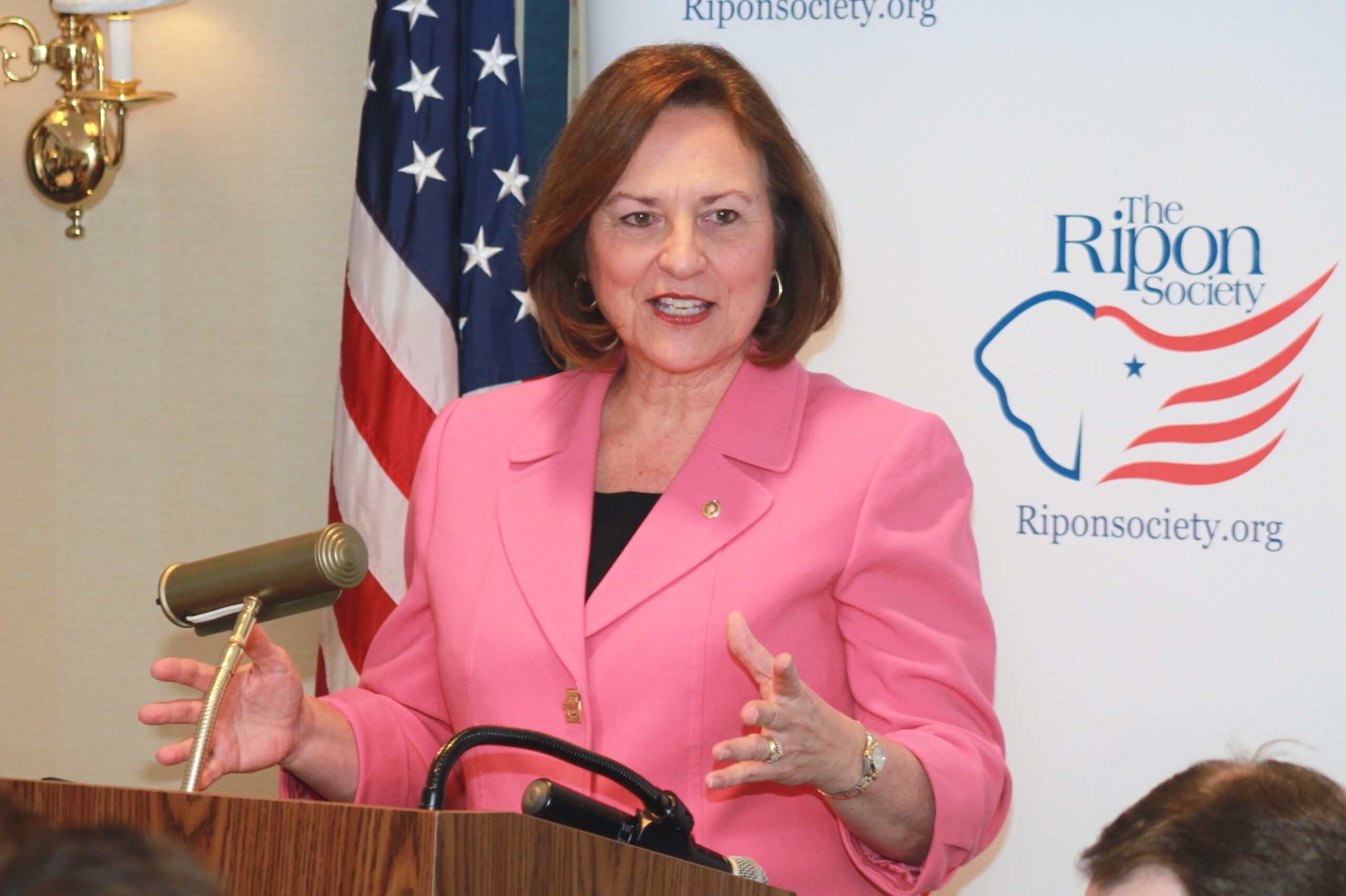 “Although America leads in so many areas, we’re falling behind when it comes to our infrastructure.”
“Although America leads in so many areas, we’re falling behind when it comes to our infrastructure.”
WASHINGTON, DC – In a speech yesterday morning to a breakfast meeting of The Ripon Society, U.S. Sen. Deb Fischer (R-NE) said it’s time for Congress to come together and develop a long-term plan to rebuild America’s aging infrastructure, and pointed to Nebraska as an example of a state where lawmakers have done just that.
“Ensuring an efficient and reliable transportation network is vital to keeping the United States globally competitive,” Fischer stated. “And as these networks evolve, America’s economic growth will depend on the resilience of our intermodal transportation structure. We certainly have some work to do to maintain and update our nation’s transportation system. Although America leads in so many areas, we’re falling behind when it comes to our infrastructure. The American Society of Civil Engineers recently issued a report card on America’s infrastructure, giving our roads a grade of D and our bridges a grade of C+.
“As we look to address America’s transportation challenges, we must keep in mind that nearly 95 percent of all consumers reside outside of the United States. Without adequate infrastructure, U.S. manufacturers will pay the price in delayed or missed shipments and lost market share abroad.”
Fischer serves as Chair of the Senate Subcommittee on Surface Transportation and Merchant Marine Infrastructure, Safety and Security. Elected to the Senate in 2012, she served as Chair of the Transportation and Telecommunications Committee in the Nebraska Unicameral Legislature – where, she said, lawmakers made transportation funding a priority and didn’t wait for Washington to act.
“Where the federal government has fallen short,” she observed, “states have led the way to address core infrastructure needs. Nebraska infrastructure, for example, fares better than the national average. In Nebraska, we have nearly 94,000 miles of public roads, of which 8,600 miles are major roads. According to the ASCE, only 6 percent of Nebraska’s major roads are in poor condition. I’m proud that one of my key accomplishments in the Nebraska Unicameral was to introduce and pass legislation that ensured our roads and bridges would remain adequately funded. By working with my colleagues, we were able to provide nearly $70 million in new revenue a year for 20 years for transportation in Nebraska – without raising taxes.
“I also passed legislation to create a state buy-back program of federal transportation dollars. My plan allowed the Nebraska Department of Roads to establish a program to purchase federal transportation funds from towns and counties at 80 cents on the dollar and sell them back to localities without burdensome federal requirements. Although Nebraska has achieved some success in implementing innovative funding mechanisms for transportation programs, Nebraska and other states still face significant transportation challenges. As one state department of transportation director recently noted at a hearing before the Surface Transportation Subcommittee, states allocate limited transportation resources – not based on ‘need’ versus ‘want,’ but based on which projects must be initiated now versus those that can be delayed.”
Fischer said it was time for Washington to follow the lead of states like Nebraska and set funding priorities – particularly with regard to transportation.
“The Highway Trust Fund is broken,” the Nebraska lawmaker declared. “According to the Congressional Budget Office, we are facing a $15 billion shortfall per year over the next ten years. Congress must address this shortfall with a long-term approach, one that provides certainty to businesses, consumers, workers, and families. We should work to find a sustainable and efficient approach to funding infrastructure — one that prioritizes Highway Trust Fund spending on core infrastructure projects and maintenance above all other else.
“While voluntary repatriation is an interesting proposal to fund transportation, it represents a one-time fix and would impede future efforts to reform our nation’s tax code. Many stakeholders advocate for increasing the federal gas tax. I am concerned that this is a regressive approach that will disproportionately harm families and rural states, like Nebraska. Other funding proposals I’ve seen include utilizing a portion of customs and duties fees to fund transportation programs, new revenues from offshore drilling, or tying a user fee to a barrel of oil. Each of these proposals have both challenges and merits.
“I believe Congress should address the gaps in current transportation user fees. Electric cars, light rail and transit systems, and alternative fuel vehicles do not pay into the Highway Trust Fund, yet they benefit from the use of highways and roads. Truckers, conventional car drivers, and other operators subsidize transit systems and electric vehicles at the expense of our nation’s transportation system. It is time for these modes of transportation to pay some form of user fee into the trust fund. As we near the next surface transportation reauthorization, I am hopeful that Congress will produce a long-term, reform-oriented transportation bill.”
To view Senator Fischer’s remarks before The Ripon Society’s breakfast discussion yesterday morning, please click on the link below:
The Ripon Society is a public policy organization that was founded in 1962 and takes its name from the town where the Republican Party was born in 1854 – Ripon, Wisconsin. One of the main goals of The Ripon Society is to promote the ideas and principles that have made America great and contributed to the GOP’s success. These ideas include keeping our nation secure, keeping taxes low and having a federal government that is smaller, smarter and more accountable to the people.



